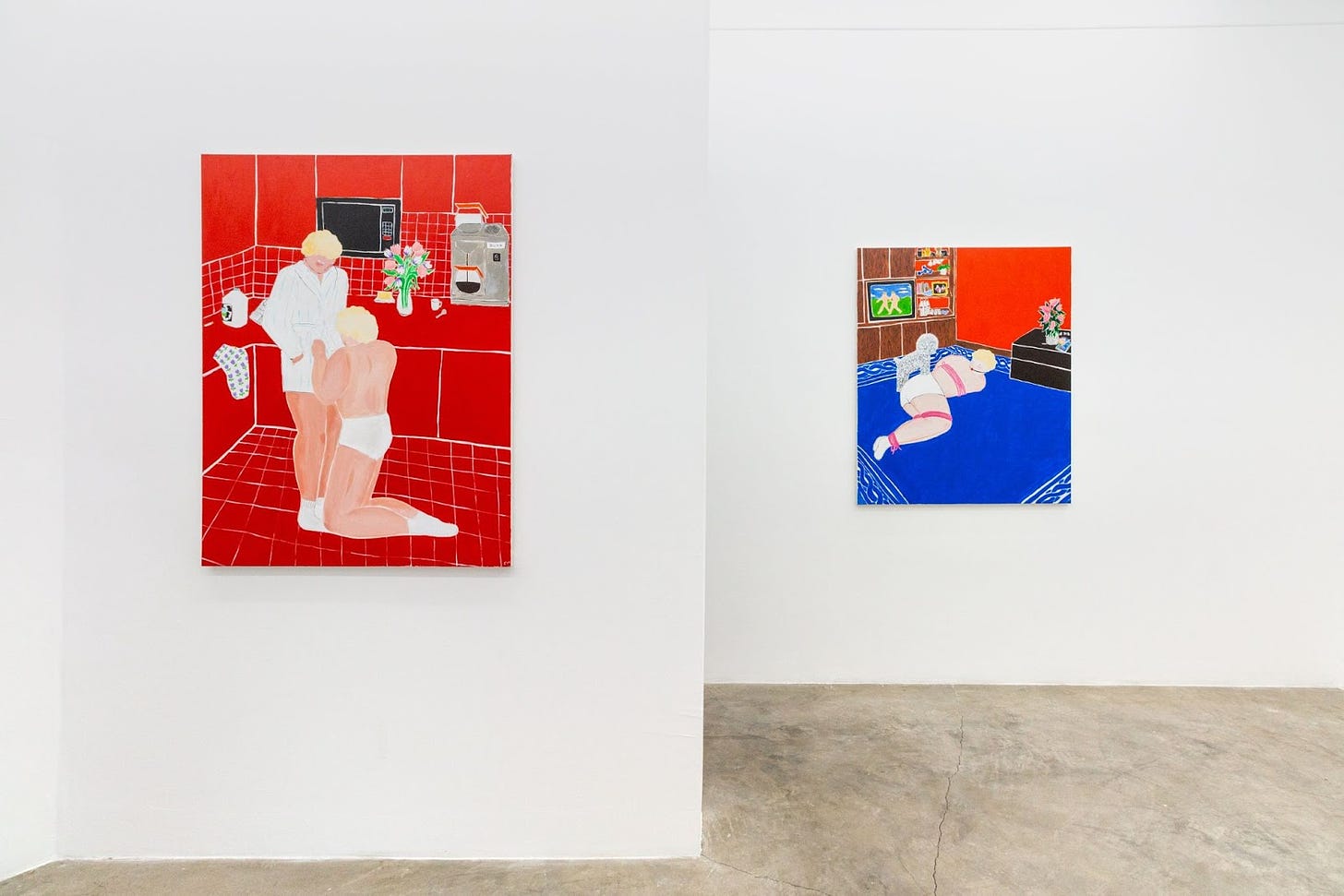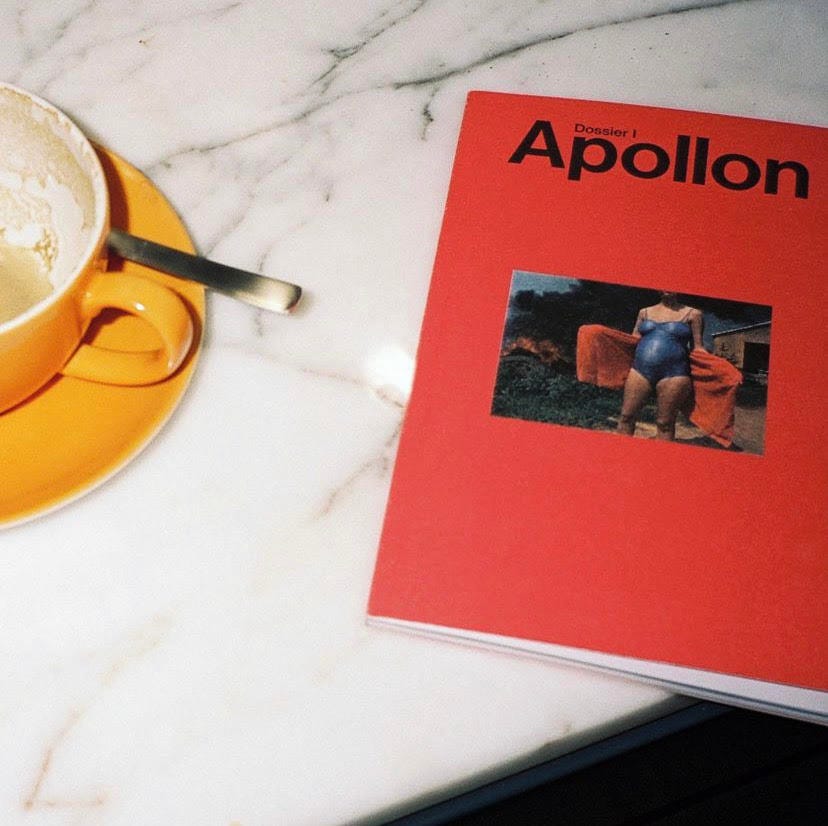I wrote this essay in 2021, commissioned for the first volume of APOLLON, a limited edition book by the Bavarian State Opera, themed around their production of Cinderella, published (in German) with paintings by Claire Milbrath from her exhibition God Shaped Hole. The version of the text below is updated.
My ex has a T-shirt that says “strong women beat arrogant men” and another one that reads “a hard woman is good to find.” I guess it’s not surprising then that he didn’t respond well to any pleasing, submissive, needy tendencies. One time he put on this Neil Young song “A Man Needs A Maid.” But he made a point of saying a maid was not what he was looking for. This was in the morning after a party at his place when I’d woken up before him and cleaned, putting all the cans and bottles in the recycling and sweeping the floor. It wasn’t really the reaction I’d been hoping for.
In 1981 Colette Dowling published the best-seller The Cinderella Complex. Not to be confused with the cinderella effect (which according to urban dictionary is when a penis is the perfect fit, like Cinderella’s foot in the glass slipper) the complex can be explained by the book’s subhed, Women’s Hidden Fear of Independence, Dowling’s examination pegged to the emotional fall-out of the women’s movement. The author explains she left her husband in the early seventies “buoyed by the militancy of the times,” and within a year, half the women she knew had done the same, “going at it alone: earning money, paying the bills, creating new social lives.” But while a political push had created new opportunities for their financial independence, according to Dowling, many of them weren’t psychologically prepared for it. She paints a portrait of “women in deep conflict over their feelings of dependency.”
According to my mom, my first sentence was “I can do it myself.” I was raised on empowerment bops by the Spice Girls and Destiny’s Child. When the pandemic hit, I’d been single for the better part of a decade. I thought of myself as a strong independent woman, then somehow I ended up in a relationship where I felt criticized for my apparent desire to be controlled. There was an incident at the Sanrio store where I asked my Covid boo if I should buy this pack of Hello Kitty cookies. He didn’t answer and I put the cookies back. When our relationship was on trial, this became evidence that I wanted someone to tell me what to do. In my defense, I quietly chose some green-tea wafers instead, but whatever, I do often ask my partner and friends for validation, how does this outfit look? etc. Maybe someone telling you what to wear can still be read as controlling, but in the era of venmo feminism and simping, getting men to do things for you is supposed to be aspirational, unzip my boots, pay my rent — not evidence of weakness or incompetence but proof of your power over them. The new fairytale refrain: someday my finsub will come.
I like to please by nature, or maybe nurture, whichever it is, I’d rather identify as a recovering people-pleaser (language courtesy self-help therapy instagram). My rehabilitation because it didn’t seem to be serving me, or anyone else for that matter. Sometimes you think you’re doing someone a favor by being so easygoing — we can eat whatever you want to eat, go wherever you want to go — but it can be a burden to always force the other person to make decisions. Though to ask for what you want, you have to know... what you want.
Some people know they don’t want any of that responsibility, and it can be a strong decision to choose no decisions. I watched an episode of this doc series about a married couple in Tennessee who engage in Daddy Dom/Little Girl age play. They’re both consenting adults: he’s 35 and she’s 27 but she acts like a toddler every day for most of the day, and when she misbehaves her husband/daddy doles out punishment, spanking her with different canes and paddles. The part of the interview that really stuck with me was the relief she felt from not having to choose. In 1844, when people’s brains would have short-circuited if they saw how many different toothpastes and cereals in the grocery store aisles, Soren Kierkegaard wrote of anxiety being the “dizziness of freedom.” Under capitalism, we’ve conflated freedom with an overwhelming buffet of choice, the majority of which, most of us can’t afford, and processing these choices, even if they’re fantasy, becomes a distraction from collectively changing our material circumstances.
The pandemic made us all more aware of how interdependent we are. With the lockdown, many had to re-evaluate living alone or pursuing only casual sex, all of a sudden a new appreciation for the value of emotional intimacy. And the virus made us consider how our actions can impact others in a very real life or death way. While naming the Cinderella Complex after the folktale-turned-Walt-Disney-animation underscores the part about a woman passively waiting for a prince to save her, the story in its many iterations actually gives a more distributed model of dependence. To change her circumstances, Cinderella doesn’t just need a rich guy, she also needs her fairy godmother — or in the Brothers Grimm version of the tale, she needs to manifest her desires via a wishing tree. Multiple iterations show Cinderella having a relationship with birds and other small creatures, underscoring interspecies exchange and our dependence on a larger ecosystem — all that Donna Harraway making-kin-in-the-chthulucene stuff we need to figure out for long-term planetary survival.
I’m not going to pretend that my own personal therapy journal has any benefit for preventing a widespread climate apocalypse. Though my most earnest, optimistic self does hope there’s some kind of lesson of learning to care for each other, foregrounding being adaptive but not spineless, that can transcend our little interpersonal dramas. And this past year I’ve been trying to find my own shape, not just pour into whatever space someone makes for me.
Image of APOLLON courtesy Martina Borsche. Paintings above by Claire Milbrath, (left) Red Kitchen Worship, 2021: acrylic on canvas, 48 x 36 in. and (right) Bonding, 2021: acrylic on canvas, 48 x 40 in. installation view from God Shaped Hole at de boer, Los Angeles, California (November 13, 2021 – January 1, 2022), courtesy the artist and de boer.




